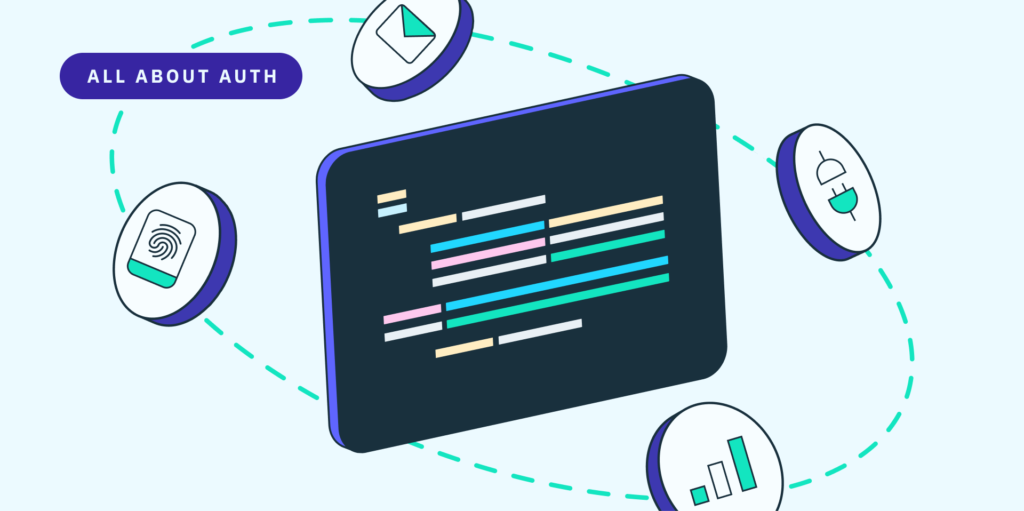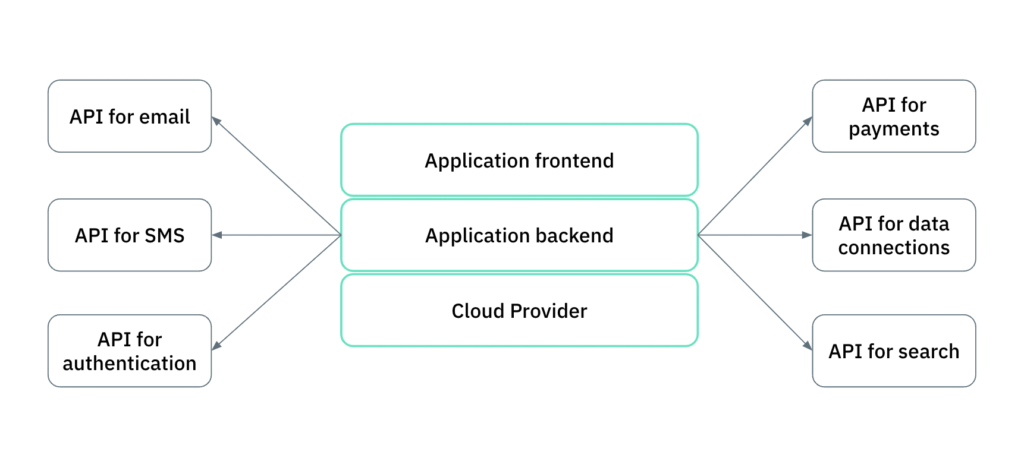How the API economy can radically transform your business
Latest
Company
August 4, 2022
Author: Julianna Lamb
On June 22nd, 2022 Stytch co-founder Julianna Lamb presented on the API economy at Collision, one of North America’s largest tech conferences. Her presentation inspired this article — watch it here.

Stytch is an API-first company. That means we build and perfect turnkey, easy-to-integrate authentication solutions — so you don’t have to. But we’re just one part of a much larger API economy that’s radically transforming the way organizations approach their digital roadmaps.
When we say API economy, we’re referring to a global network of API companies, each providing the technical infrastructure to unlock a specific function or capability for growing companies and enabling them to scale faster.
Today, API companies command hundreds of billions in market cap, and they’re fundamentally changing the way your company can ideate and build products.
In this post, we explain what an API is, how different API companies make up the API economy, and how this new landscape can supercharge your team to ship better products and features more quickly.
What is an API — and why does it matter?
API stands for application programming interface. APIs essentially work as mediators or messengers that allow different applications to communicate. More specifically, APIs are responsible for exchanging data and performing actions across services.
But beyond the technical, why do APIs matter for your company, for your product and for your business? Because by facilitating interactions between systems, APIs make it easier and faster for developers to integrate and innovate around essential services needed for a business to succeed (e.g. the ability to communicate, to authenticate users, and receive payments).
Simply put, APIs allow you to focus on what you do best, and outsource the rest.
At earlier stages of web development (pre-API), you had to build a team of experts skilled at building an SMTP server, integrating with telecoms, authenticating users, processing payments, and so on. Building each of these essential app components could easily require an engineering team of dozens, if not more. But today, you can get all of these functionalities out of the box with a simple API – now, more than ever, you don’t have to worry about building it yourself because there are best-in-breed API companies to rely on for each of these application functionalities.
Understanding the different pieces of the API economy
The best part of API companies is that they have one sole focus. That means they invest all their engineering and product resources in building the best-in-class solution for a specific problem. By leaning on API companies with a niche area of expertise, you’re able to embed all that knowledge directly into your product — without having to invest significant time and resources in the process.
There are a myriad of different types of API companies that make up the API economy. Some major functions they can serve include:
- Performing a specific action: for example, Twilio helps you send an SMS; Mailchimp helps you send an email; Checkr helps you perform a background check.
- Providing a specific piece of a product’s functionality: for instance, Stripe helps companies facilitate and process payments for their goods and services, while Stytch authenticates users into an app or website.
- Enabling data connectivity (APIs for APIs): companies like Plaid and Merge are universal APIs, which help companies aggregate data from dozens of different APIs, platforms, and accounts through a single integration.
- Powering the API economy: companies like Postman make it easier for companies to use and manage APIs, while MuleSoft makes it easier to build APIs.

A modern tech stack including functional components like an SMS verification API, a search API, and a multi factor verification API enables rapid development. So, how does all this help you achieve real results?
Business benefits of the API economy
APIs can yield several important and immediate benefits for a partnering business. Among other advantages, they help you:
- Increase efficiency: APIs abstract away the application layer, so you can focus on the unique and innovative parts of your products and rely on API companies for everything else.
- Improve UX: a specialized API company lives and breathes a specific solution and will be able to provide a much better user experience than the fractional attention your team can spend on a non-differential feature.
- Scale effortlessly: you can leverage an API to quickly test and validate your product roadmap and add additional solutions from the API platform as you grow and discover new needs. What’s more, APIs will scale with you. API companies have built-in infrastructure to support your growth and handle any potential scale issues.
- Future-proof your business: finally, API companies are continuously investing in cutting-edge technology in their domain of expertise. As they discover and implement new technology, you get instant access through your existing partnership and integration.
Embrace the API economy with Stytch
The main message here? Don’t reinvent the wheel. Take full advantage of third-party API companies’ expertise to fuel and accelerate your product development.
Just as it would seem outrageous to build your own data centers in 2022, it will soon feel just as outrageous to build undifferentiated pieces of your product — like login or search capabilities — when you could be investing that development time and effort in building a stellar, differentiated product.
If you want to learn more about Stytch’s API — and how you can build simple, out-of-the-box authentication flows directly into your product in minutes — reach out to our team, and get your questions answered.
Or — sign up, and explore our easy-to-integrate authentication solutions for yourself.